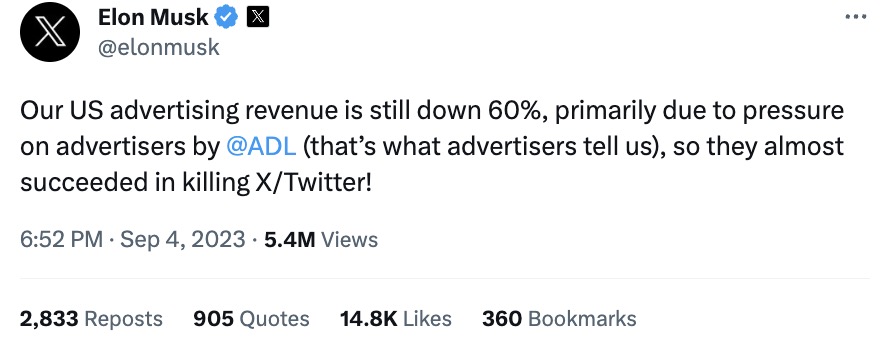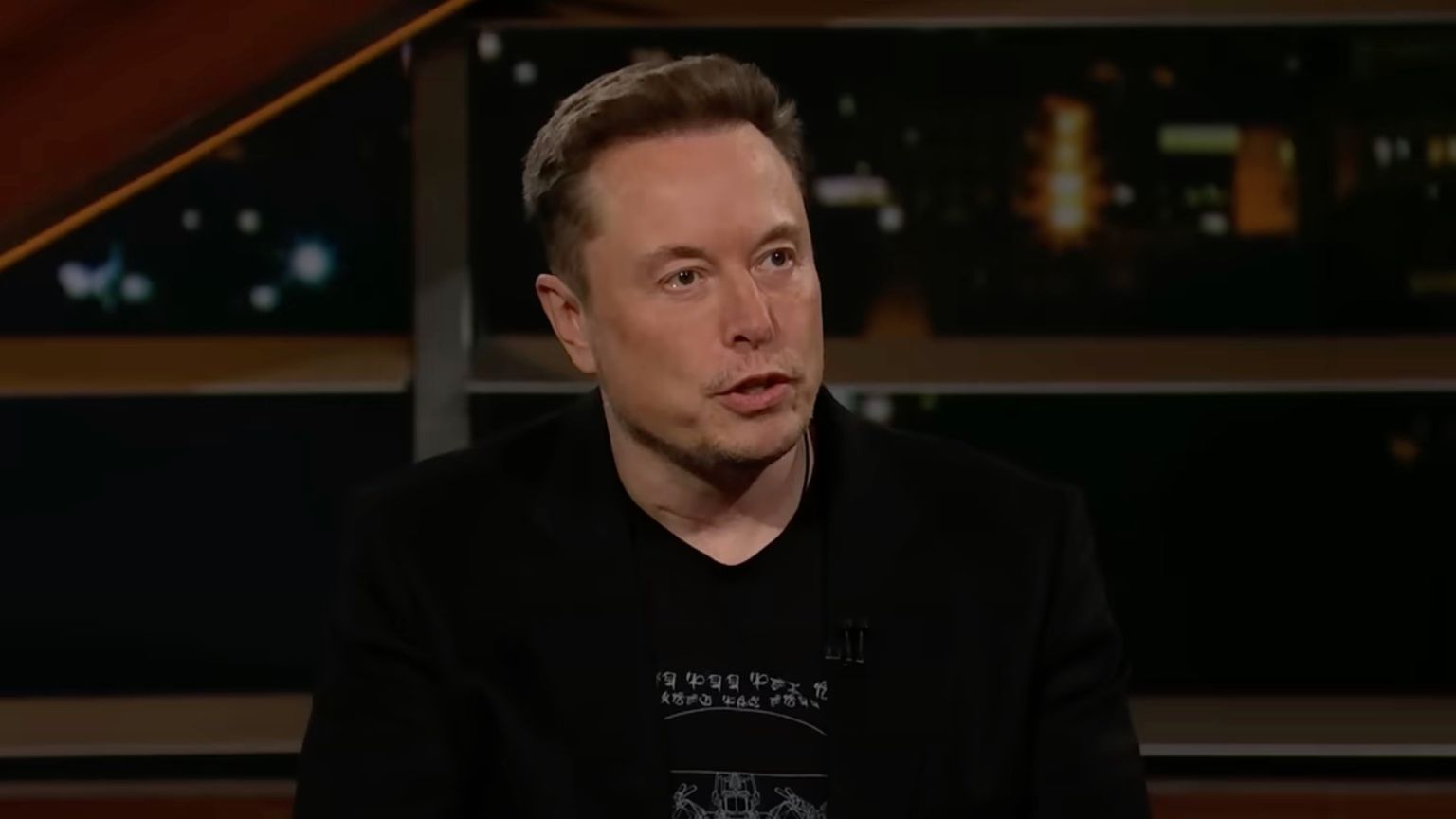In an escalation of a feud with the Anti-Defamation League (ADL), Elon Musk is threatening to bring a defamation lawsuit against the prominent pro-censorship non-profit organization. As owner of social media giant X, formerly known as Twitter, Musk asserts that ADL’s accusations of escalated “hate speech” under his platform’s management have perilously undermined its advertising revenue.
Musk’s fiery reaction appeared on his own social media platform, where he proclaimed, “US advertising revenue is still down 60%, primarily due to pressure on advertisers by @ADL (that’s what advertisers tell us), so they almost succeeded in killing [our platform].” He condemned the ADL’s attempts to discredit him and his platform with unfounded charges of anti-Semitism, necessitating a judicial recourse to vindicate their reputation.

In response to all this, the ADL kept mum on the potential lawsuit. It even noted a recent meeting with Linda Yaccarino, CEO of Musk’s platform, suggesting a good faith attempt at resolving conflicts. Yaccarino reciprocated, expressing optimism about an evolving partnership built on good intentions and candor.
However, the undercurrent of antagonism between Musk and the ADL remains palpable, as evidenced by a #BanTheADL campaign growing on Musk’s platform and Musk’s own engagement with posts critical of the organization. To this, the ADL responded with fortitude, stating, “This type of thing is nothing new.”
ADL, along with the Center for Countering Digital Hate (CCDH), has been vocal about allegations of a spike in “hateful” content under Musk’s leadership.
Musk counters the watchdog groups’ claims, dismissing their reports as “utterly false.” He insists that the incidence of hate speech views continues to decline under his leadership.
Last month he slapped a lawsuit against the CCDH, accusing the group of knowingly driving advertisers away from his platform by disseminating damning content.










